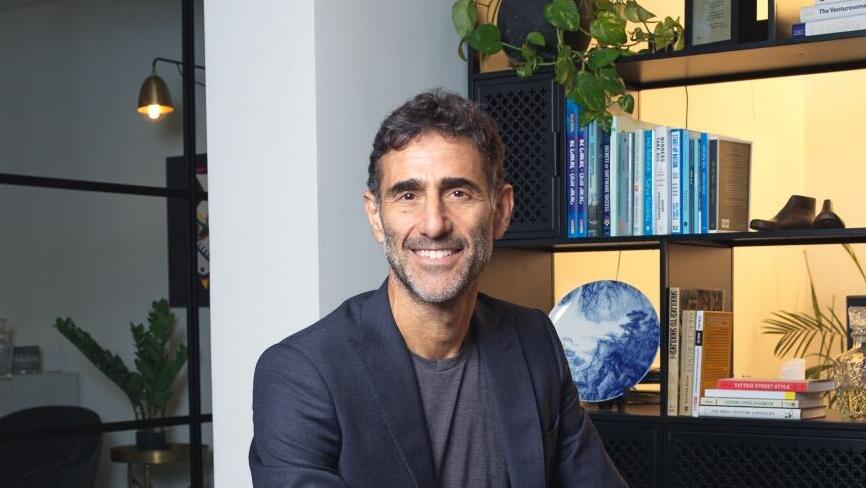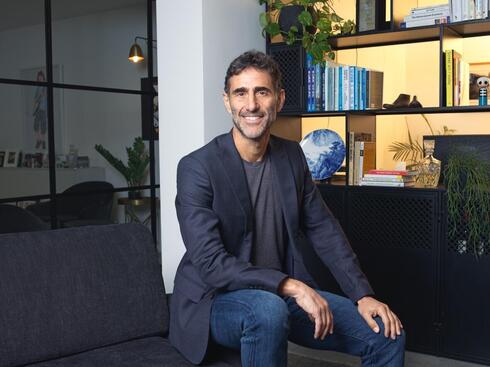
What’s next?
“We have hit the bottom…but I don’t expect to see the markets quickly rebounding and reaching their peaks”
Boaz Dinte, Managing Partner and a co-founder at Qumra Capital, spoke with CTech as part of the series “Where do we go from here?”, aiming to examine how the Israeli VC industry is dealing with the crisis in the sector
“With every tech bubble, the need for domestic VC funds is questioned. With every tech bubble burst, the answer is obvious. Domestic funds committed to the domestic market are crucial to the survival of the industry. Without domestic funds, global funds will not play in this market as well,” says Boaz Dinte, Managing Partner and a co-founder at Qumra Capital, to CTech as part of the project “Where do we go from here?”, which aims to examine how the Israeli VC industry is dealing with the crisis in the sector.
Check out every What's Next? article
Dinte stressed that the Israeli sector will not be able to continue from the point the crisis started as the landscape has significantly changed. Capital providers have retreated to their home base and will need significant convincing to resume investment activity in the market.
Over recent months, we have witnessed one of the most serious crises to hit Israeli high-tech in recent decades: on the one hand, a global economic slowdown, and on the other hand, local political turmoil that sent the industry into deep stagnation. Since the general assumption is that the situation will not change in the near future, the question hovering over the industry is what can still be done to minimize the damage to the Israeli high-tech industry and how should we act so that when the crisis passes - all those involved can take a leap forward. Therefore, as part of this on-going project, we spoke with senior executives from the local venture capital industry to try and understand from them what needs to be done now to justify the reputation Israeli high-tech has earned as being creative, adaptive, innovative, agile and cunning.
Name of fund/funds: Qumra Capital
Total sum of fund: $1Bn
Partners: Erez Shachar (Managing partner), Boaz Dinte (Managing partner), Sivan Shamri Dahan (Managing partner), Sharon Barzik Cohen (Partner and CFO).
Notable/select portfolio companies: Frogg, Fiverr, AppsFlyer, Riskified, Simply, Augury, MinuteMedia, At-Bay, Aquant, Ermetic, Tytocare, ConnecTeam, Datarails
“The Israeli sector will not be able to continue from the point of crisis as the landscape has significantly changed”
How long do you think the global economic slowdown will last? Do you think we've hit the bottom?
“While in Hebrew we say that ‘prophecy was given to the fools’, I daresay that we have hit the bottom. In the first quarter of 2023, markets began to stabilize and slightly recover with software valuations becoming more correlated to a mix of growth and profitability. The Nasdaq has shown a strong recovery since the beginning of the year and the index of SaaS companies, which massively corrected downward in 2022, has been showing recovery since the beginning of the year, placing business fundamentals almost exclusively at forefront. When factoring current interest rates levels, and the 10-year US treasury yield, it seems that median SaaS valuation have overcorrected downwards, but are now getting close to the long term mean. As a veteran investor that has seen multiple downturns, I don’t expect to see the markets quickly rebounding and reaching their peaks. In fact, these peaks may not be reached again in the foreseeable future.”
When the local crisis ends - will the Israeli sector continue from the point where the crisis started (let's say January 2023), or has there been a setback that will make it necessary to invest time and energy to bring it back to that same point?
“The Israeli sector will not be able to continue from the point of crisis as the landscape has significantly changed. Capital providers have retreated to their home base and will need significant convincing to resume investment activity in the market. While the tech industry remains inherently attractive, investor confidence in the country’s governance has been shattered. The combination of a global downturn and an internal uprising severely impacts Israel’s high-tech sector and if the judicial overhaul will materialize, investor confidence may never be restored.”
Does the fact that large international funds have generally slowed down the pace of their investments - play to the benefit of the local Israeli funds and to the benefit of the local ecosystem?
“In general, I am competitive and a fan of competition. Competition doesn’t let you rest on your laurels and drives you to perform better. In addition, we operate in a market where funds cooperate to the benefit of the companies. Global funds bring a unique angle to companies, which is important for their success and therefore a combination of domestic funds with international funds is a winning team. With every tech bubble, the need for domestic VC funds is questioned. With every tech bubble burst, the answer is obvious. Domestic funds committed to the domestic market are crucial to the survival of the industry. Without domestic funds, global funds will not play in this market as well.”
Do you support the general assumption that AI can rescue the industry from the current crisis?
“The Generative AI revolution may prove to be at least, if not more, transformational than the smart phone or cloud revolutions. The pace of advancement of language models and applications and the ability to automate tasks and generate human-like content should have far-reaching consequences on productivity, cost reduction, decision making and more. This technology has captured VC attention and while I believe we are only at the verge of understanding its disruptive impact, we already see significant spending on this sector in the U.S. I wholly believe that this is a significant growth innovation engine that can pull the industry back into gear.”
Related articles:
Are there positive sides to this crisis?
“Today it’s obvious that between 2019-2021 we operated in an irrational environment. The crisis enforces a back-to-basics approach, with an enhanced focus on cash preservation and efficiency. Because cash was easily available, companies were easily funded resulting in some verticals producing duplicate companies which have overlapping products, use cases, and customers. We can definitely expect to see consolidation here. Most companies will tighten their belts but founders and boards should ask themselves to what end are they surviving and if they foresee a viable, standalone business when their 24 months of runway comes to an end. With other companies doing the same calculations, some companies may even want to begin positioning themselves for an acquisition now. I believe we will see at least 20% of these companies not survive.”
How can you take advantage of this interim period (until the crisis passes) to prepare better for the reawakening when it arrives?
“We are constantly looking at new sectors that are achieving maturity and ripe for late stage funding. We think that in the coming decade PropTech and Climatech will be among these verticals. New areas which still don’t have many growth stage opportunities today, but seem to have a lot of interesting early stage startups are the areas of foodtech and agritech. As part of our strategy, we make it a point to become deeply acquainted with founders of such companies in early stages, so when the time is right, the relationship is in place.”
What are the critical points in which the Israeli venture capital industry was hit?
“Investment pullback in Israel was significant in absolute numbers and relative to the U.S. pullback, because the bubble in Israel was larger. Capital infusion peaked as a result of active global players that elevated valuations to all-time highs. Such valuations will make it extremely difficult for investors to exit while showing returns on investments. Multinational corporations expect a negative impact of the judicial changes on their interest in buying, or commercializing Israeli innovation and tech companies report difficulties in acquiring new customers.”
